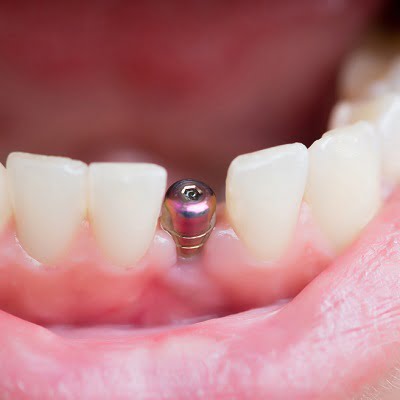
 It’s critical to comprehend the various kinds of dental implants that are available if you’re thinking about getting them to replace your missing teeth. There are now several different types of dental implant to choose from thanks to developments in dental technology. We’ll talk about the three most popular kinds of dental implants in this article.
It’s critical to comprehend the various kinds of dental implants that are available if you’re thinking about getting them to replace your missing teeth. There are now several different types of dental implant to choose from thanks to developments in dental technology. We’ll talk about the three most popular kinds of dental implants in this article.
Introduction: Understanding Dental Implants
Let’s briefly go over what dental implants are and why they are so popular before we get into the various types of dental implants. In order to support a replacement tooth or bridge, dental implants are artificial tooth roots that dentists insert surgically into your jawbone. Dental implant provide a long-lasting replacement for missing teeth and can enhance your smile’s functionality, aesthetics, and general health.
Types of Dental Implants:
Endosteal Implants
The endosteal implant is the most typical kind of dental implant. Dentists insert endosteal implants into the jawbone. Once the implant site has recovered, a dental prosthetic is connected to the implant. Endosteal implants are typically made of titanium or a titanium alloy and can support a single tooth or a bridge of several teeth.
Types of Endosteal Implants
There are several types of endosteal implants available, including:
Screw implants:
These endosteal implants, which resemble screws, are the most prevalent kind. For patients with healthy bone density, they are perfect.
Cylinder implants:
These implants have shape like cylinders. Those patients who have thinner jawbones.
Blade implants:
These implants are long and flat. Only patients with narrow jawbones are suitable.
Subperiosteal Implants
When there is not enough healthy jawbone for an endosteal implant, subperiosteal implants are an alternative type of dental implants. Dentists position subperiosteal implants beneath the gum line but above the jawbone rather than directly into the jawbone. So the implant is then connected to a false tooth.
Who Can Benefit from Subperiosteal Implants?
For patients who have lost a significant amount of jawbone as a result of periodontal disease, trauma, or other conditions, subperiosteal implants are the best option. So, these implants can offer a stable and long-lasting replacement for missing teeth because they are made specifically to fit the individual contours of your jawbone.
Zygomatic Implants:
When there is not enough bone in the upper jaw to support a traditional implant, zygomatic implants, a less popular type of dental implant, are an option. Instead, zygomatic implants, (attached to the cheekbone, zygoma), can offer a secure foundation for a dental prosthesis.
Who Can Benefit from Zygomatic Implants?
Patients who have lost a significant amount of bone density in their upper jaw, making conventional implants impossible, typically use zygomatic implants. Hence, even in patients who have been told they are not candidates for conventional implants, these implants can offer a stable and durable solution for missing teeth.
Benefits of Dental Implants:
For people who are missing one or more teeth, dental implants are a great option. The following are a few benefits of dental implants:
Improved appearance:
Dental implants have designs to look and feel like your natural teeth, improving the appearance of your smile.
Better speech:
You may have an impact on speech by missing teeth, making it challenging to pronounce some words. Your ability to speak clearly restores, thanks to dental implants.
Increased comfort:
Dental implants are comfortable to wear and do not cause the irritation and soreness that can occur with other tooth replacement options.
Improved oral health:
As long as you have dental implants, you can keep your remaining teeth healthy and prevent bone loss because of their anchoring to your jawbone.
Enhanced chewing ability:
With dental implants, you can eat your favourite foods without worrying about discomfort or difficulty chewing.
Long-lasting:
A number of dental implants can last for several decades with proper care, making them a reliable and long-lasting tooth replacement option.
Convenient:
In short, dental implants do not require any special maintenance, aside from regular brushing and flossing, making them a convenient option for many people. Overall, dental implants are a popular tooth replacement option for people of all ages because they provide a number of advantages, both functional and cosmetic.
Choosing the Right Dental Implant for You:
To find out which type of implant is best for you it’s crucial to speak with a trained dental professional. This is important if you’re thinking about getting dental implants. All three types of implants—endosteal, subperiosteal, and zygomatic—offer special advantages and can replace missing teeth permanently. You can make an informed choice and get the healthy, attractive smile you deserve by being aware of the various dental implant options. Call Royal Cosmetics Islamabad directly or fill out the form given below.






